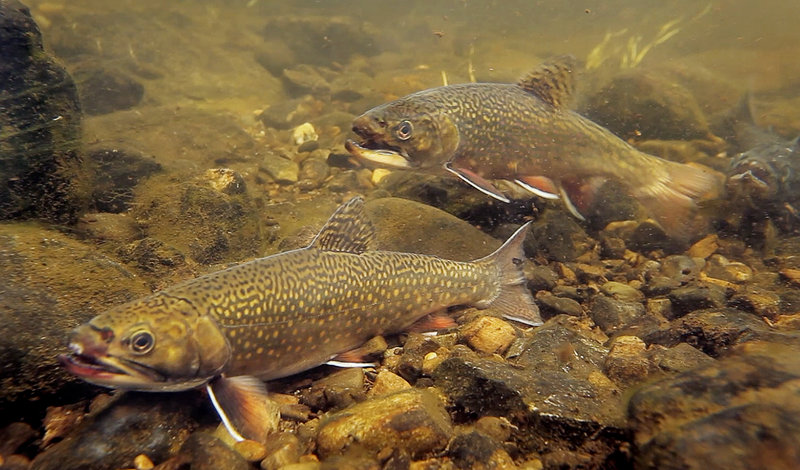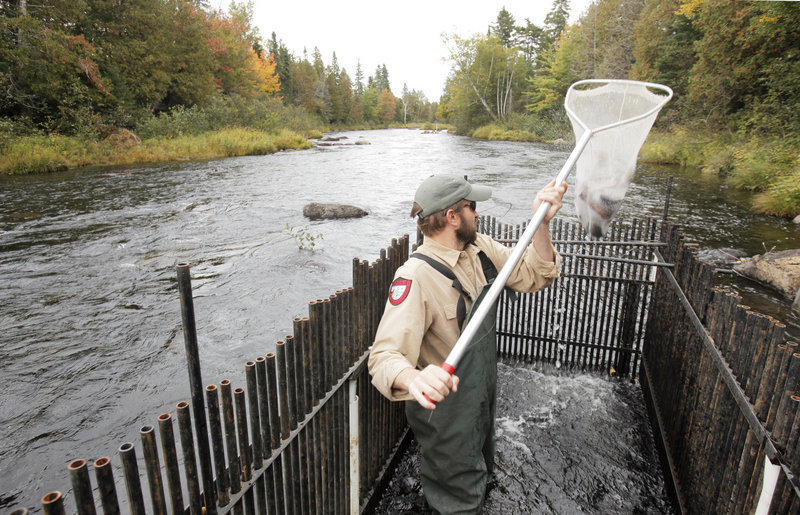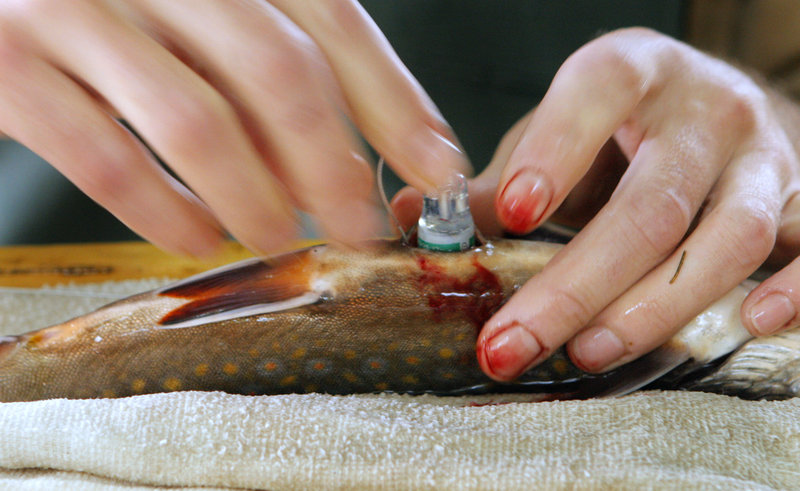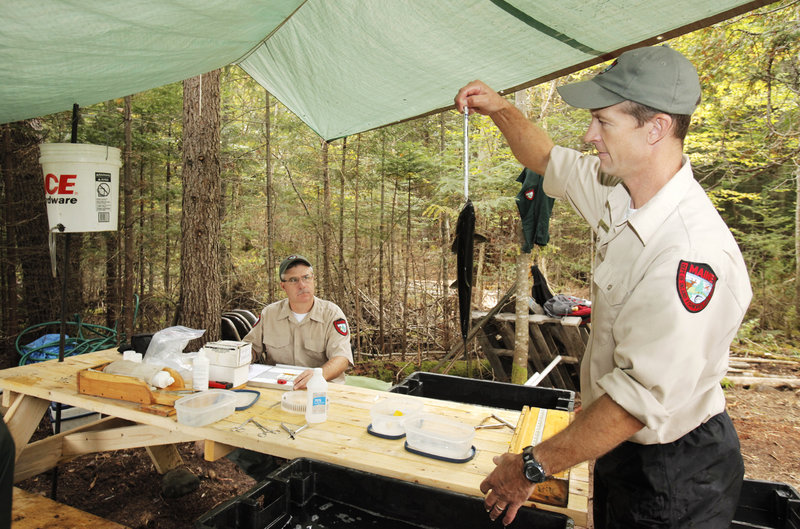Maine is the king of wild brook trout waters in the Northeast, and the Roach River may be the most majestic of all. This fall, biologists in the Moosehead region are taking steps to keep it that way.
Regional biologists with the Department of Inland Fisheries and Wildlife are catching wild brook trout in the river and affixing radio transmitters to them to track where they go in Moosehead Lake, which the Roach drains into from the east. The same was done on the Socatean Stream on the west side of Moosehead Lake last year.
A total of 30 mature brook trout will carry surgically implanted radio transmitters. Knowing how the brook trout in the Roach River survive will be exciting data for biologists.
Maine is recognized as the last stronghold in the Northeast for wild brook trout and Moosehead Lake and its tributaries are known as the hotbeds.
At a time when illegal introductions have ruined many wild trout and salmon waters to the south, the little Roach River is like a proud ambassador for the state’s fisheries.
“There are probably many different definitions of world-class fishing, but the Roach is certainly one of the best river fisheries in the lower 48 states. It is all wild brook trout, catch rates are excellent, and size quality is excellent,” said regional biologist Tim Obrey in Greenville.
Located at the doorstep of Maine’s North Woods, the Roach River has been nationally known as a wild brook trout destination for decades.
That’s because the brookies are ample, coming from the largest wild brook trout lake in the state, and they are easy to catch, even on a fly rod, which is all that is permitted in the river, Obrey said. The strict fly fishing-only, catch-and-release regulations have been in place there for 15 years.
But fly fishermen have traveled to the river en masse at least since 1920, when the road from Greenville to the village of Kokadjo was built.
Robert Auclair, the state biologist at Moosehead Lake from 1955 to 1985, said the Roach River was a draw long before he stepped in to manage it in the 1950s.
Brookies more than 20 inches long were often caught then, and that remains true today.
“Of course the Roach River was famous. I think a lot of out-of-state anglers made the trip to the Roach River each year to fish it, especially fly fishing. Eventually, we were able to convince the department the Roach River should be a special place and the state bought the land on both sides of it,” said Auclair, 92, in Rockwood.
The department purchased a 250-foot buffer strip along each bank of the river the entire length from First Roach Pond to Moosehead Lake, to maintain the Roach River’s wild appearance. It’s part of its allure.
“We get people from overseas, and a lot from New England, and I sell licenses to people from all around the country. I just sold one to a fisherman from San Diego,” said Peggy Legere, co-owner of the Maine Guide Fly Shop in Greenville for 28 years.
So this year biologists have made a push to learn more about the “cream of the crop” of Maine’s wild brook trout, as Obrey calls Moosehead’s wild brookies.
Obrey said the same study in the Socatean Stream showed that 60 percent of mature male brook trout died soon after spawning, proving what biologists suspected: that wild brook trout are in an extremely fragile state during the spawning season.
Having this information, he said, will be key to helping protect the Roach River. It’s as proactive as science gets, the gathering of this extra data.
While there is no current threat to the river, Obrey said, if one occurred, biologists might be lost without a deeper understanding of the wild brook trout’s habits.
And if the wild brook trout in Moosehead Lake were lost, Maine’s status as a fisheries haven could be, too.
“Wild trout were once distributed along the entire East Coast, all the way to the Carolinas, and now there are very few intact wild populations outside of this region of Maine. We are really the last stronghold for wild, native brook trout on the entire East Coast. This part of the state is ‘it’ when it comes to wild brook trout and if it is ruined for self-serving reasons, it will be gone forever,” Obrey said.
Staff Writer Deirdre Fleming can be contacted at 791-6452 or at:
dfleming@pressherald.com
Send questions/comments to the editors.







Success. Please wait for the page to reload. If the page does not reload within 5 seconds, please refresh the page.
Enter your email and password to access comments.
Hi, to comment on stories you must . This profile is in addition to your subscription and website login.
Already have a commenting profile? .
Invalid username/password.
Please check your email to confirm and complete your registration.
Only subscribers are eligible to post comments. Please subscribe or login first for digital access. Here’s why.
Use the form below to reset your password. When you've submitted your account email, we will send an email with a reset code.